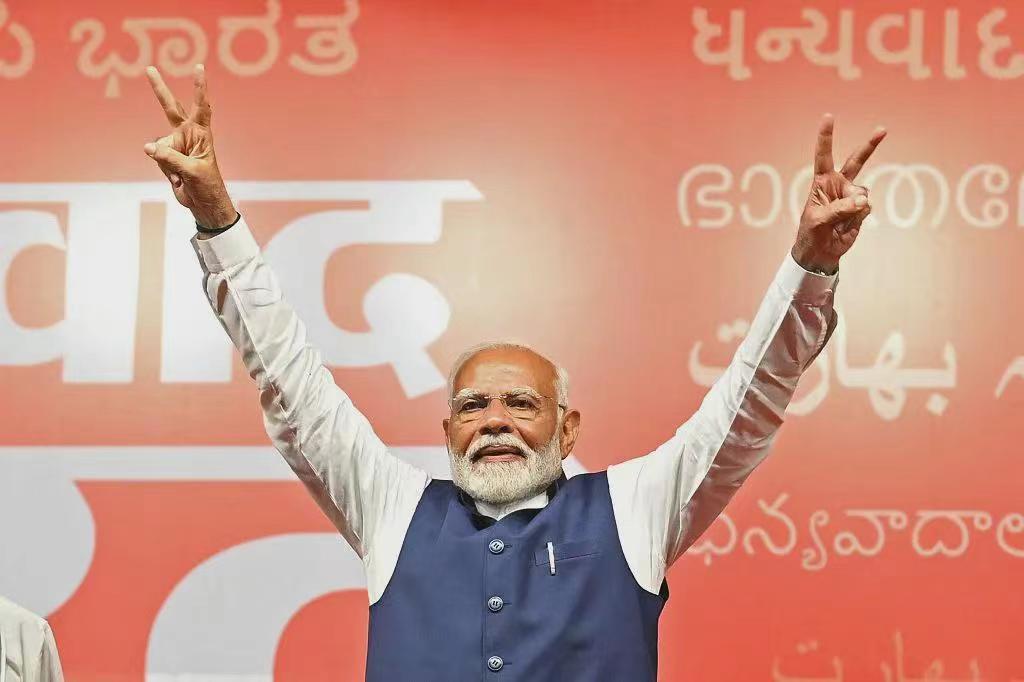
Modi Economics refers to the series of economic policies and reform measures implemented by Indian Prime Minister Narendra Modi since his rise to power in 2014. These policies aim to promote India's economic growth and transformation, and have garnered widespread attention internationally.
One of the core aspects of Modi Economics is the promotion of the "Make in India" initiative. This strategy aims to attract foreign investment, stimulate manufacturing growth create employment opportunities. By simplifying administrative procedures, easing restrictions on foreign direct investment, and improving infrastructure, India seeks to become a global manufacturing hub. The positive impacts of this policy include the significant attraction of foreign capital and, to some extent, the growth overseas manufacturing and technology transfer. However, critics point out that the inevitable expansion of manufacturing comes with impacts on the labor market, particularly affecting low-skilled workers, as well as challenges to environmental sustainability.
Digitalization and financial inclusion policies promoted by the Modi government are also integral to its economic agenda. Through initiatives such as "Digital India" and the "Unified Payments Interface" (UPI), India has accelerated the development of the digital economy, increasing the accessibility of financial services. These measures help reduce poverty, enhance transparency and efficiency of government services, and provide new economic opportunities for small businesses and rural areas. Nevertheless, the rapid advancement of digitization also brings risks of data privacy and cybersecurity, necessitating corresponding regulations and protective measures.
Modi's economic policies include tax reforms, with the most notable being the introduction of the Goods and Services Tax (GST). GST aims to create a unified domestic market, simplify the tax system, and reduce tax evasion. Although this reform has caused short-term impacts on certain industries and consumers, in the long run, it is expected to improve tax efficiency, promote growth and reduce economic distortions. However, the implementation of GST has also exposed complex execution issues and impacts on small and medium-sized enterprises.
In addition, Modi's policies in sectors such as agriculture, energy, and infrastructure construction have also had significant implications for the economy. For example, promoting the development of renewable energy and improving transportation networks helps enhance the economy's long-term competitiveness. Nevertheless, reforms in these areas face challenges such as insufficient funding, difficulties in land acquisition, and local political resistance.
Overall, Modi Economics represents India's ambition for modernization and globalization. It attempts to address deep-seated issues in the Indian economy, such as bureaucracy, backward infrastructure, and inadequate financial systems, through a series of structural reforms. While achieving certain successes, such as increased economic growth and foreign capital inflows, these policies have also raised concerns about equity, environmental protection, and social stability. Therefore, the effectiveness of Modi Economics will largely depend on how the government balances the importance of growth trends with social inclusiveness and sustainable development. In the future, as India's role on the global stage becomes increasingly important, Modi Economics will continue to be closely watched by domestic and international observers and investors.

報告顯示,中國電力投資加速增長,預計2024年電網基建投資將超過5300億元。
近日,市場迎來了一則引人注目的消息:工業巨頭3M公司(MMM.N)在本周五公布了其季度業績報告,隨後股價飆升至近兩年來的
最近,外媒給OpenAI算了筆賬,今年可能要血虧50億美元。
近日,巴黎奧運會和世界鐵人三項協會聯合發布了一項重大決定,宣布因塞納河水質污染問題,原定於近期進行的奧運會鐵人三項首次下
當地時間7月18日,法國巴黎發生了一起令人震驚的持刀襲警事件。
近期,一則重大消息在國際舞臺上引起軒然大波,馬來西亞宣布加入金磚國家。
調查發現,互聯網和智能手機的使用幹擾了韓國近五分之一學生的生活。